
The British singer-songwriter speaks with GAY TIMES about her lauded fifth album, the need more for “union” between feminists and trans people and the future of her cult queer comedy GLOW.
WORDS BY SAM DAMSHENAS
PHOTOGRAPHY BY DORA PAPHIDES
FASHION BY RÍON HANNORA
MAKEUP BY OONAH ANDERSON
HAIR BY YO ALEXXI KRUIZ
SET DESIGN BY MACY TRIEU-DINGLE
SET ASSISTANTS ERELIN CRAY, DOM BLENCOWE
MOVEMENT DIRECTOR LIAM JOHN
LIGHTING ASSISTANT JOSH HAMMAREN
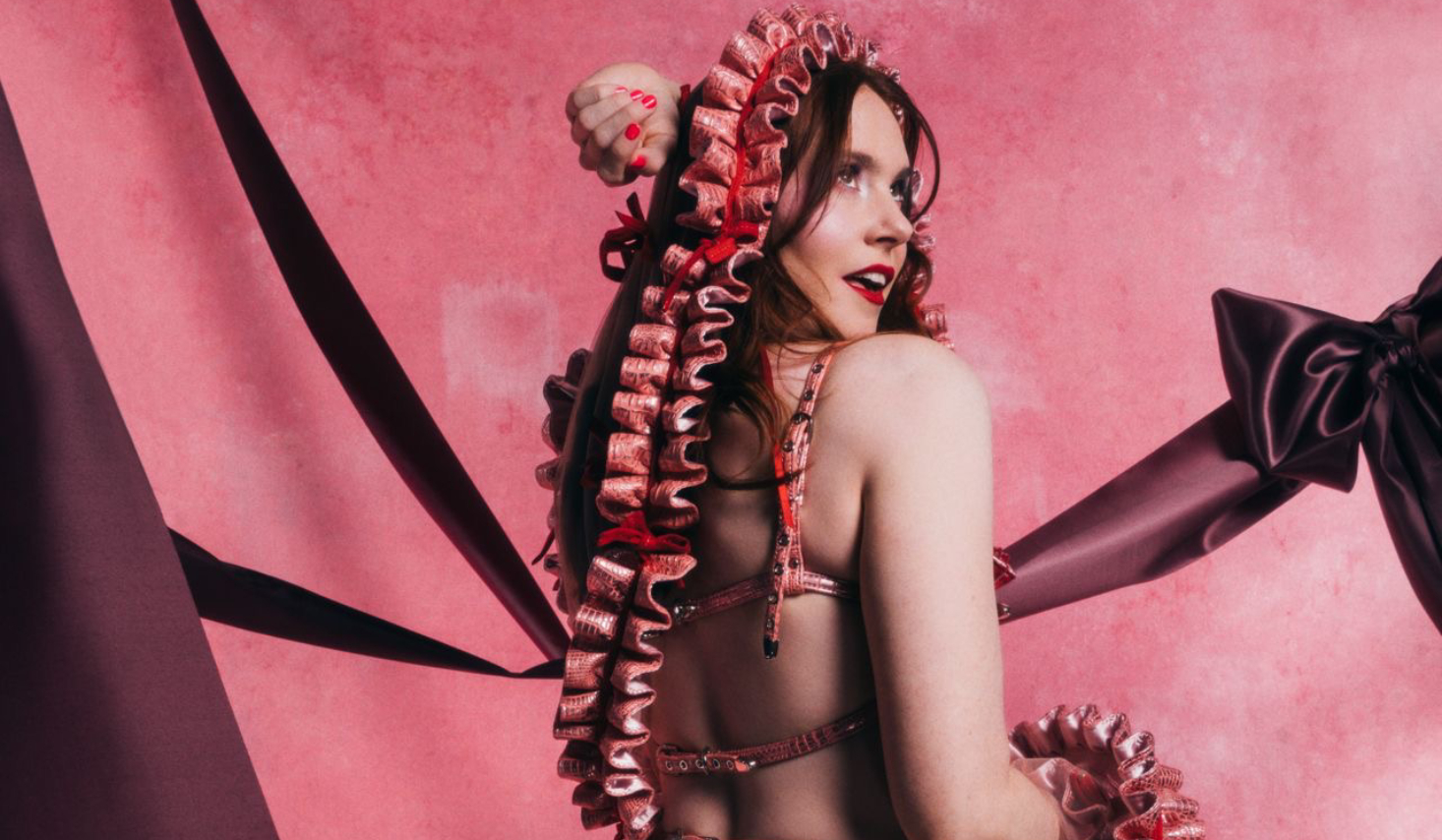
“Rhonda would be such a good vampire slayer,” Kate Nash (correctly) says of her Britannica wrestler-scientist in GLOW. Minutes into the Zoom call, Buffy is the main topic of conversation as a result of a) my incredibly fashion-forward season one t-shirt and b) Kate’s shared love of Sarah Michelle Gellar’s pop culture juggernaut, having previously paid tribute to the series’ seminal musical episode, ‘Once More, with Feeling’. This is all relevant, as the British singer-songwriter goes on to tell me that she was going ‘Going Through the Motions’ like the aforementioned heroine with her fifth studio album.
9 Sad Symphonies, her first release in six years, is also Kate’s darkest and most honest collection to date. Tackling heavy themes of existentialism and depression, it reflects how she “lost a spark for life” over the past 12 years: “And I’ve always been a really sparky person. It’s a weird feeling to be like, ‘The gas is on so low and I just can’t turn it up.’” Like Buffy felt from being expelled from heaven, Kate admits that she often thinks, “What the fuck is the point in all this?”
All of the above awaits in the following interview, as well as Kate discussing the importance of her LGBTQIA+ relationships, from her loyal fans to her band members, the need for “more union” between feminists and the trans community and why “breaking down gender is key in our fight to equality”. Of course, an interview with Kate Nash wouldn’t be complete without (as we teased in the opening sentence – it all comes full circle!) a chat about GLOW, Netflix’s cult comedy that deserves a revival in order for world peace to take full effect.
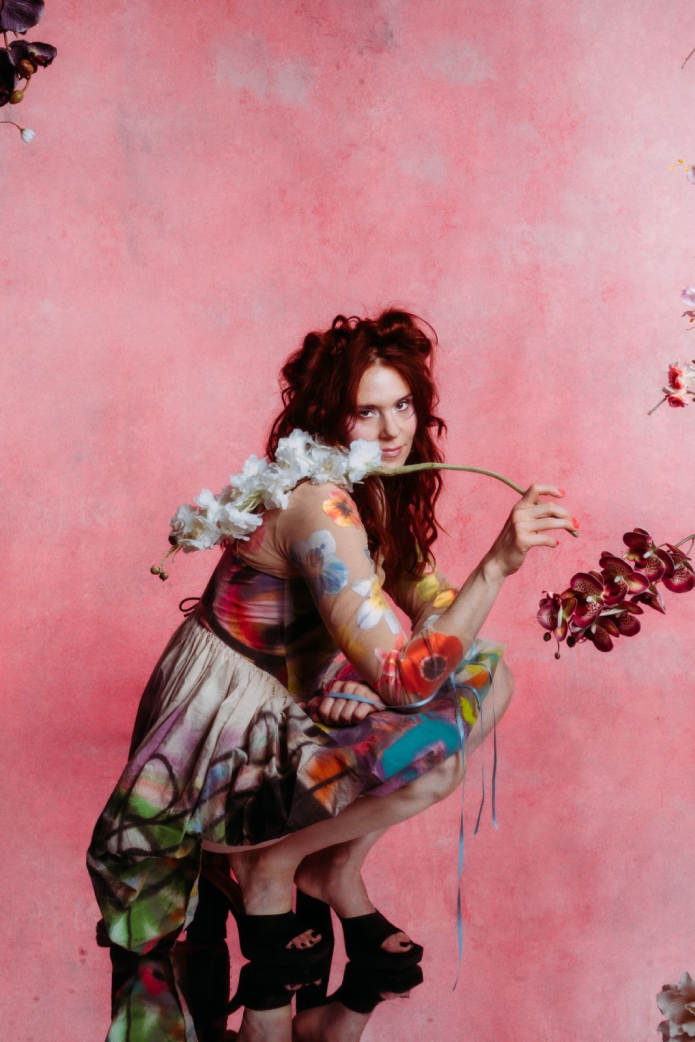
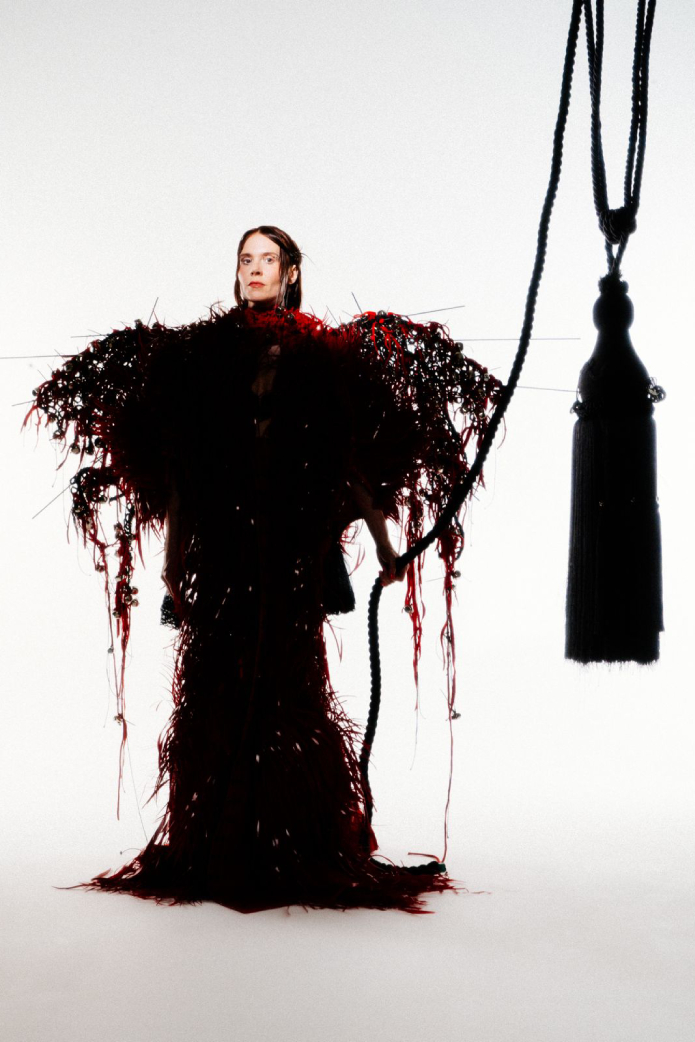
Kate, I was going to change my t-shirt before this interview, but then I remembered that you are, like me, a huge Buffy freak.
Oh my god, I really am. Your t-shirt is iconic. That’s the picture from season one, isn’t it?
It is indeed. Before we get into it, I need to know your favourite episode – besides ‘Once More, with Feeling’.
Season five is my favourite. They’re adults and totally established. Willow was in a gay relationship. It’s so sexualised with the witchcraft but in this really beautiful way. In season four, I always remembered her and Tara kissing, but they didn’t. I actually spoke to [Amber Benson] the actor who plays Tara, because they do kiss in season five, right?
Yes, in ‘The Body’, the episode Buffy’s mum dies.
It was a groundbreaking episode of TV. I love the season because you start with so much hope, and then Buffy dies. It’s so heroic and scary, and it feels like she really evolves. It’s almost like completely saying goodbye to your childhood. It is my childhood. Also, Spike’s line, “Out. For. A. Walk… Bitch” is one of my favourites. But what is my favourite episode… What’s yours?
Season five is also my favourite, so I think it has to be the finale, ‘The Gift’.
That finale is fucking amazing. You know how people felt about Nirvana? That’s what Buffy was to me. And I feel like her secret identity was such a thing for queer people, and girls. For anyone who was considered an outcast or had to pretend to be something they’re not, or if you weren’t out as a teen, there was something about Buffy that made you feel like, ‘I connect to this’.
Kate, this could honestly just turn into a Buffy interview, so we have to be careful.
We could just talk for 40 minutes and then start a new Zoom and talk about Buffy for another 40 minutes.
I am so down, Kate. So, how does it feel to have your first album out in six years?
It’s flown by, really. I finished touring in 2019, then we started season four of GLOW and then got shut down for the pandemic. The last few years have been really figuring out my team because I got all these offers from labels and management through TikTok. Isn’t that crazy? It was like a flashback to my MySpace days. It took me time to find the right manager. I’ve never had a good manager, but I do now.
What did that decision look like, because I know in the past you’ve spoken about your difficulties with record labels, as well as the gross men at the top?
It’s a very shady industry. There’s no HR department or someone to go to in times of trouble. The people you’re supposed to go to in times of trouble are the ones that fuck you over; a bunch of, mostly, coke-heads that wanted to hang out with bands by being their manager. Part of that is the nature of the work, because it’s at night time, an environment that’s not professional. There’s a wildness in that that should stay, because music spaces are exciting and not traditional, but we do need things to change. I feel so lucky to finally be in this place. I’m starting fresh in a weird way with the label, agent and new management. They’re sane, passionate and thoughtful. It’s so cool to feel good about a new team because they’re just music nerds who love music. They’re investing in me as a person and an artist, so that feels really safe.
Sonically, 9 Sad Symphonies feels light and hopeful, but the lyrics are quite the opposite. When I heard ‘Millions of Heartbeats’ I honestly thought, ‘Fucking hell,’ as I really resonated with the existential themes. Was that intentional, that dichotomy between the production and lyrics?
I like that juxtaposition with music sounding joyful. 60s girl groups always did that well. ‘Stop! In The Name of Love’ by The Supremes is at every wedding, yet it’s about a woman begging her husband not to cheat on her anymore. [‘Millions of Heartbeats’] is about the feeling of living in these catastrophic times, where we are constantly reading something fucking insane. I lost a spark for life, and I’ve always been a really sparky person. It’s a weird feeling to be like, ‘The gas is on so low and I just can’t turn it up.’
When people ask how you are, you don’t want to be like, ‘I’m depressed and I don’t understand my purpose.’ You’re getting numb and disassociating because you’re like, ‘How do I have hope in all of this?’ It was important to start the record that way. It’s like ‘Going Through the Motions’ from ‘Once More, with Feeling’. Buffy’s like, ‘I’m slaying after being expelled from heaven, what the fuck is the point in all of this?’
I think about that video, ‘The Pale Blue Dot’, where Earth looks tiny, like a speck of dust in the universe. It’s the feeling I get when you look at the stars; everything matters and nothing matters. Yet here we are, fighting over somebody elbowing you on the tube when there’s war and bloodshed. We have this one life, as far as we know. It’s grappling with that like, ‘No, I need to try’. Earth is really fucking beautiful and it’s amazing to be alive. And there’s a version where I didn’t make it this far. I just turned 37, and not everyone gets to turn 37. It’s a privilege to age, grow and keep pushing forward. These are the themes I grappled with on the album, that lack of purpose.
Is it weird that I’m currently at a point where all of what you just said makes absolute sense to me?
No, I’m glad. I feel relieved because sometimes I’m like, ‘Is this too much for people?’ I think we’ve got it so wrong with branding and individualism and identity on social media driving the self forward for maximum profit. What actually feeds your soul is community, and that’s why I think queer people are a lot more in touch. I was talking about this with my trans friends, because there’s actual safety in community. There’s less in-built community with straight people because socialising is about… I mean, go to a fucking wedding. Everything’s tied to a woman’s purity of being sold to her husband by her dad. I have progressive friends but I’ll go to their wedding like, ‘Are you kidding me?’
Jane Goodall says you have to think locally, and that’s how you make a difference in the world. You’re one person, but you really fucking matter and your voice can impact so many lives. Local community work is really important in saving democracy. This guy, Robert D. Putnam, says you cannot save democracy by just focusing on saving democracy. I think about that on social media, where we all need to become the news.
There is a thing about protest and spreading awareness, right? But there’s also socialising and joining a community. He tells people to join a club because you’ll be instantly participating in democracy without realising it. I love that idea because we’re so focused on screaming at each other in really adolescent ways, and it’s helping push people to the far right. Twitter has really helped the far right and fascism, and who’s in charge of Twitter? Who is the glass ceiling of Twitter?
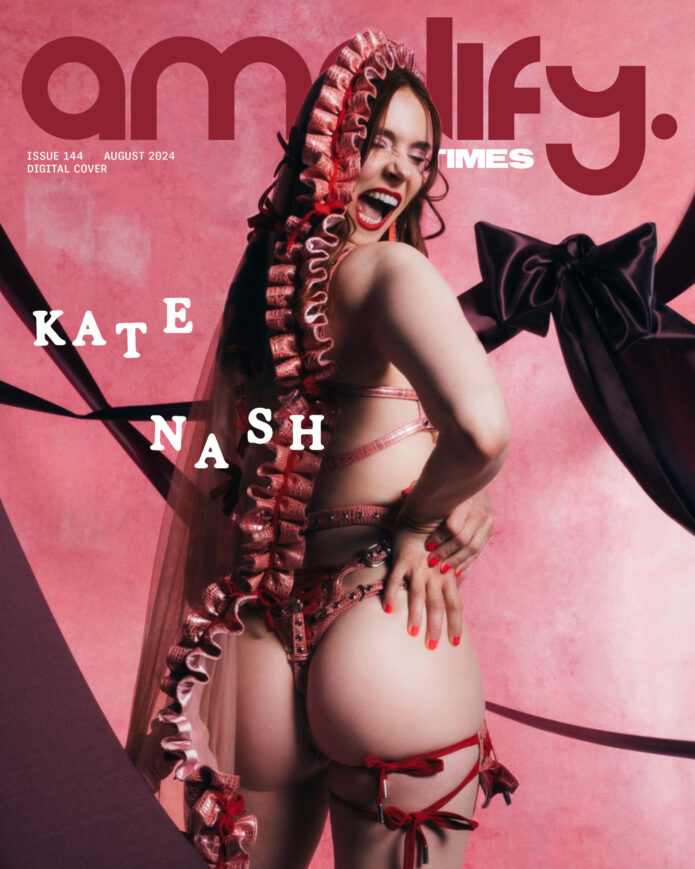
I mean, my “For You” page has been flooded recently with anti-trans accounts and rhetoric, when I do not engage with that kind of content whatsoever.
It’s bait for you to get pissed off, so they can earn money from you being upset. It’s scary to think that the world is being manipulated by these rich billionaire boys who read sci-fi novels and own tech companies. Like Elon Musk, who has designed cars to look like 80s sci-fi cars. I’m not using Twitter anymore and I’m not the main user on my Instagram account. I got a new phone and I’ve got two-step verification, and because of that, my new phone wasn’t the main phone. So, my manager is the main user. I was about to text my manager like, ‘We need to swap it so I’m the main user’ but then thought, ‘Wait, this will make my life so much better.’ Now, I can’t get into Instagram without my manager approving it, and I’m really happy with that because I’m not mindlessly scrolling. Instagram makes me dumber. I have this fear that, on my deathbed, I’ll see an angel who will tell me I spent 14 years of my life on Instagram. Like, what a waste of my fucking life. I can’t be headed towards 40 and still be addicted to it.
All of this honesty is absolutely reflected in the album. You’ve always been extremely authentic in your lyrics, but I don’t think you’ve ever been this existential and vulnerable, so this time around, how did it feel using music to communicate those feelings?
It’s quite vulnerable. I’m in therapy at the moment. I’m also releasing music on a record label again and living in London, which I haven’t done for 10 years. I came back because I needed to be here to release this music, but it’s very confronting. I think playing shows and meeting the people that connect to your music is the thing that grounds you the most. It makes it all worth it. I’ve been doing this since 2006, and there’s so many parents coming with their kids. There’s teenagers at my shows, which blows my mind. I’ll have a 16-year-old that knows all the words and after the show they’ll tell me, ‘This makes me so nostalgic.’ I’m thinking, ‘For when?! How old are you? How can you be nostalgic?’ And they’re like, ‘For when I was eight.’
Made of Bricks is this entry point to my music, kids can connect with ‘Mariella’ in essence and then grow up with it. At Rough Trade in Nottingham, a dad was with his daughter and he came up to me after to say, ‘I didn’t want to get emotional, but your music taught me how to be a better dad.’ And he started crying. I’m like, ‘This is so surreal, where it’s gotten to.’ Now I’ve got young adults that were teenagers when my album came out and they’re pregnant, which is this amazing, mind-blowing thing. It’s beautiful to be part of people’s relationships in this intimate way.
Speaking of fans, you’ve gained an extremely passionate following since your debut album – particularly amongst queer women. We have to acknowledge GLOW’s impact too. When did you first notice that support, and how would you describe your relationship with your fans?
I really noticed it the first time I went to San Francisco, and I noticed so many couples standing in front waiting for me to sing ‘Nicest Thing’. As soon as I did, they would start making out with each other and I was like, ‘Yes!’ I’m a feminist and loads of my employees are trans and they’re my best friends and family. We’re having loads of conversations at the moment because there’s healing to be done. Like, the way I’ve talked about feminism in my shows over the past 18 years, I can see how that’s impacted my fans. Recently at a show… I have lots of great male fans, but I also have a type of male fan that has limited emotional availability, and they don’t know how to communicate. They get a bit too drunk and neg me during the show. I’ve got to a point where, when that happens, my fans told him off and got him to stop. I don’t even have to be the one to do it anymore. I’ve thrown people out before because I’ve had guys throw condoms at me during ‘Foundations’. I’ve talked about feminism so much that my fans take care of it in a calm and amazing way. So, I just feel like this platform can be used for so much good. If you have queer and trans people in your life, we need to share the space because it makes us better people.
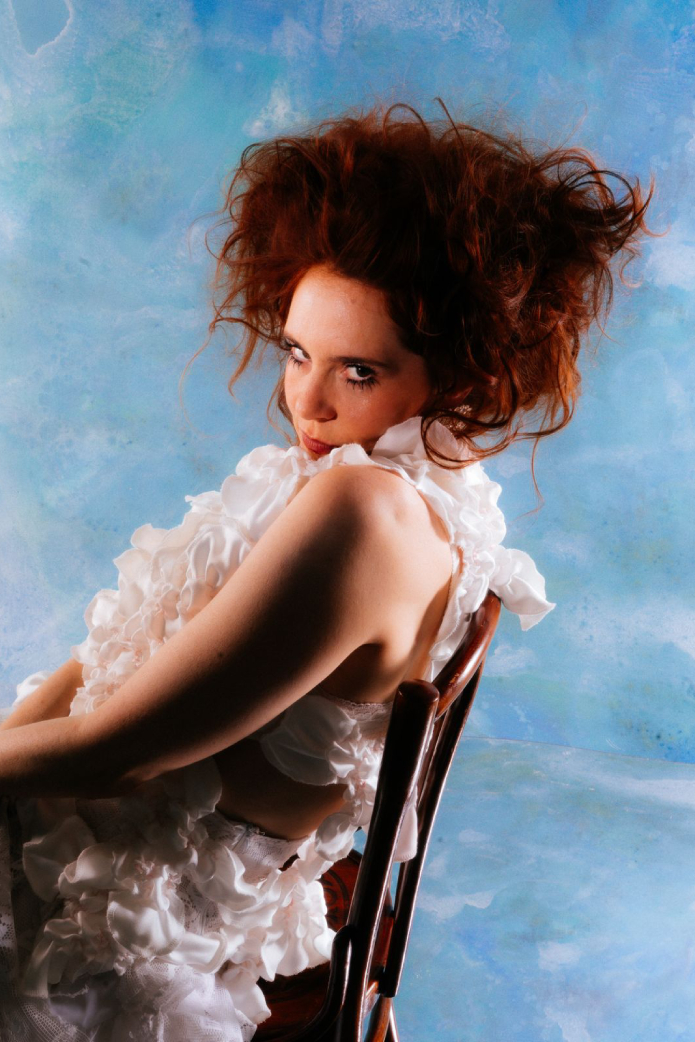
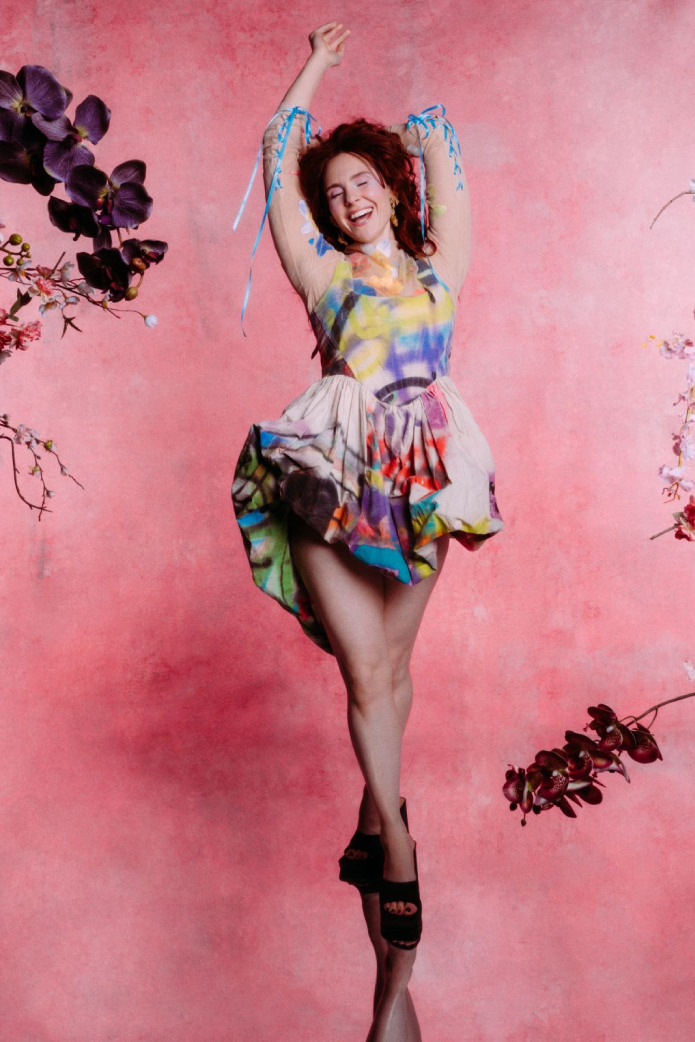
I love that – not the negging part, but how your fans come together. As you mentioned, you have lots of queer friends and band members. How important are those relationships to you?
My drummer Maxie, who is trans masc, and I have been talking about what we can do to show positive union and representation for trans fans and cis people at shows. At Glastonbury, he asked me if he could take his shirt off and I said ‘Yeah, for sure’. He came around to the front of the stage and we all took our end-of-show bow. He recently had top surgery and his scars were proudly on show in front of thousands of people. He saw queer people in the crowd that could identify with him, and there was something so powerful yet simple about that kind of validation he was able to give others – and himself. With the work we do as musicians, moments like that can be hugely impactful. Being on stage opens up potential for influence in a really beautiful and unique way.
Feminism has taught me so much about how our differences are strengths, and how we each have the right to identify how we please, how we have to try and find ourselves out of the male gaze and patriarchy. Breaking down gender and intersectionality is key in our fight for equality. People seeing the exploration of gender as a threat to feminism have it wrong. We have to work so hard to figure out who we actually are outside of what the world has told us a man or woman should be; to step outside the male gaze, religion and media is so hard. Plus, these ideas are not new. Just dig into history. History is so fucking key to us getting perspective and shedding our egos about what we think are new ideas. ‘Urania’ was a zine that was first printed in 1916 by feminists who wanted to contest the “gender binary and celebrate same-sex love”.
The non-binary people in my life are so influential to me. Being able to express yourself outside the gender binary is powerful and exciting, and it makes sense: it’s only going to help us smash ceilings. My best mate and guitarist, Boom Buratto, is one of the most influential people in my life and their perspective and philosophies are hugely important to me. We’ve been through sexism, feminism, homophobia, the music industry, world politics, relationships. They constantly do the work to break down the world they were raised in, while also respecting so much about history, family and their homeland. Identity is emotional and a total wrestle. It’s integral to me at this stage in my life to question things we have accepted as the norm, from gender to wedding practices to internet use habits, relationship expectations, monogamy… Even the makeup and clothes I wear, all attachments I’ve been taught or influenced by. I believe the more union we can build between feminists and trans people, the safer and better we can make the world and be more free as humans. I’m angry at feminism being dragged through the dirt when it comes to trans rights because there’s such a fucking bond and union there. We can create a bigger space of there being a positive connection between feminists and trans people. I’m working on a manifesto about feminism and trans people, because in the media we have these spokespeople that are the main focus of the trans feminist debate.
I would love to briefly touch upon GLOW, aka one of the best shows of all time that was, in one of the cruellest and most unjust decisions in history, cancelled by Netflix. In your recent piece for The Guardian you said it saved your life?
There’s moments in your career where you’re like, ‘That changed fucking everything.’ I was dealing with my manager stealing from me and I was very frozen. I didn’t know how I was going to have a music career and carry on. I’m not from a background where I have an infinite supply of funds, so it put a grenade in my career. I was lost and confused. Then I booked GLOW, but my confidence was in the gutter. Everything I’d been through, from the media to this manager, I was like, ‘It’s my fault. You put it all on yourself.’ Then I went into a wrestling ring with Chavo Guerrero and 14 female comedians. These women physically and emotionally lifted me over their shoulders. They’re still my family, all of them. I know that’s not accessible to everyone, but I cannot recommend that enough for building confidence.
It’s like what you said earlier about joining a community.
Yeah, you’re a team. We trained like a sports team. We had such a deep bond and I think we always will. I laughed everyday until my abs hurt. We would be creasing, dying with laughter. It was one of the best times in my life. I’ll always feel like I won something. I’m like, ‘I fucking got GLOW.’ Then I get to take away those relationships that I’ll always have in my life. Bring back GLOW!
You were so iconic as Rhonda. In another universe, she’s absolutely a vampire slayer.
Oh my god, Rhonda would be such a good vampire slayer in those outfits. Imagine how many vampires we could kill?
Kate, it needs to be brought back for reasons pertaining to world peace. I mean, we live in a world where Two and a Half Men ran for 12 seasons. Think! About! That!
Worst show ever.
9 Sad Symphonies is out now.
The post Kate Nash: ‘People seeing the exploration of gender as a threat to feminism have it wrong’ appeared first on GAY TIMES.

0 Comments